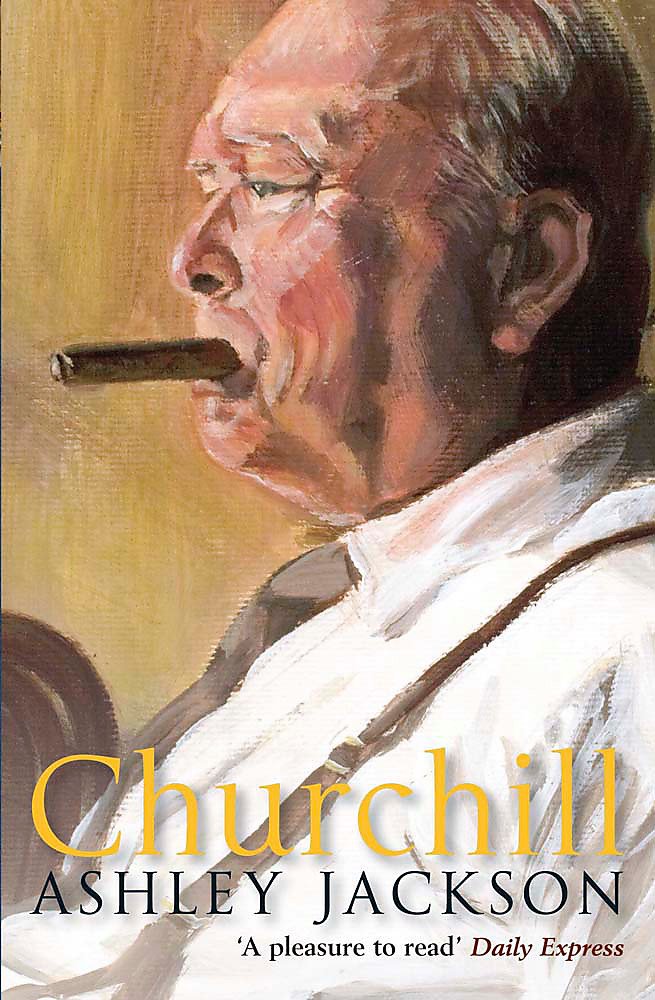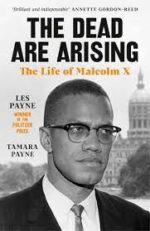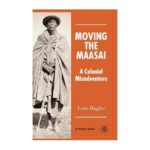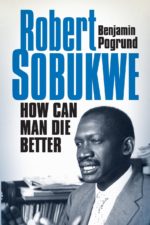In a much-acclaimed account, Jackson describes the contours and contradictions of a remarkable life and a career he describes as ‘Winston Churchill’s appointment with destiny’.
Churchill-by Ashley Jackson
KSh 700.00
In a much-acclaimed account, Jackson describes the contours and contradictions of a remarkable life and a career he describes as ‘Winston Churchill’s appointment with destiny’.
1 in stock
| SKU: | 9780857388346 |
|---|---|
| Categories: | Biographies & Memoirs, Historical Biographies, History books |
Related products
-
Born A Crime: Stories From A South African Childhood
KSh 1,695.00Reading books is a kind of enjoyment. Reading books is a good habit. We bring you a different kinds of books. You can carry this book where ever you want. It is easy to carry. It can be an ideal gift to yourself and to your loved ones. Care instruction keep away from fire.
-
Violent Politics: A History of Insurgency, Terrorism, and Guerrilla War, from the American Revolution to Iraqer
KSh 1,500.00Guerrilla warfare is not just the tool of modern-day terrorists in the Middle East. Its roots stretch back to our very own revolution.
In Violent Politics, William R. Polk takes us on a concise, brilliant tour of insurgencies throughout history, beginning with America’s own struggle for independence. Continuing on, Polk explores the role of insurgency in other notable conflicts—including the Spanish guerrilla war against Napoleon, the Irish struggle for independence, the Algerian War of National Independence, and Vietnam—eventually landing at the ongoing campaigns in Afghanistan and Iraq, where the lessons of this history are needed more than ever.
-
The Dead Are Arising-the life of malcom x
KSh 2,195.00The Dead Are Arising is a penetrating and riveting work that affirms the centrality of Malcolm X to the African American freedom struggle and the story of the twentieth century. Renowned Pulitzer Prize-winning investigative journalist Les Payne paints vivid and dramatic scenes from start to finish, from Malcolm’s clandestine meeting with the KKK in 1961 to a minute-by-minute account of his murder in 1965, in which Payne reveals the complicity of the American government.Payne interviewed everyone he could find who had known Malcolm X in a nearly thirty-year-long quest – including siblings, classmates, friends, cellmates, FBI moles and cops, and political leaders. Conjuring a never-before-seen world of one of the twentieth century’s most compelling figures, this magisterial work sets his life not only within the political struggles of his day but also against the larger backdrop of American history
-
Star Dust Falling
KSh 650.00In August 1947 in the highest of the High Andes, one of the earliest long haul passenger aircraft, a Lancaster called Star Dust, disappeared en route to Santiago, Chile. It left behind only questions: was it sabotage; was there a horde of gold on board; and what was the meaning of the radio operator’s mysterious final message before the air waves fell silent? Only with the discovery of the wreckage by two Argentinian climbers in January 2000 could those questions finally begin to be answered. Star Dust Falling is the story of those on board that pioneering aircraft and of the ramshackle airline British South American Airways which sent them to their deaths. Run by an austere Australian war hero newly arrived from bomber command, BSAA’s flying crew consisted entirely of ex-bomber pilots. The fleet of converted Lancaster Bombers operated on a shoestring, regularly flying without sufficient fuel or access to adequate weather forecasts. The result was that it became one of the most dangerous airlines in the western world. Yet it wasn’t until a third of its planes had crashed and dozens of its passengers had died that the Government finally called a halt. In this account, Jay Rayner recreates the events surrounding the loss of Star Dust and her discovery 50 years later, piecing together the lives of the characters involved: the Chilean-Palestinian passenger with a diamond stitched into the lining of his suit; the King’s Messenger with his bag full of diplomatic secrets; the crew of fearless pilots working in unbelievably strenuous conditions; the Argentinian climbers who risked their lives to find the wreck; and the Argentinian military men who declared war on each other in an attempt to claim the credit.
-
Salamis : The Greatest Naval Battle of the Ancient World,
KSh 795.00“Salamis” tells the story of possibly the greatest naval battle of the ancient world. Involving hundreds of thousands of combatants and well over a thousand triremes – the ranking naval war engine of the time – it was the culminating battle in a twenty-year struggle between the Persian Empire and the Greeks. Against all odds – and with the help of a little treachery, a brilliant strategy and a lucky wind – the Greeks defeated the Persians, and with it began the roll-back of the Persian Empire, and the beginning of the Hellenic imperium. This epic tale is told through the individual stories of twelve characters, six form each side, each of which played a major role in the battle and its aftermath.
-
-
How Can Man Die Better-Robert sobukwe
KSh 1,500.00Archbishop Desmond Tutu on Sobukwe: ‘I am greatly privileged to have known him and to ave fallen under his spell. His long imprisonment, restriction and early death were a major tragedy for our land and for the world.’
On 21 March 1960, Robert Mangaliso Sobukwe led a mass defiance of South Africa’s pass laws. He urged blacks to go to the nearest police station and demand arrest. Police opened fire on a peaceful crowd in the township of Sharpeville, and killed 68 people. The protest changed the course of South Africa’s history. Afrikaner rule stiffened and black resistance went underground. International opinion hardened against apartheid. Sobukwe, leader of the Pan-Africanist Congress, was jailed for three years for incitement. At the end of his sentence the government, fearful of his power, rushed through the ‘Sobukwe Clause’ to keep him in prison without trial.
For the next six years, Sobukwe was kept in solitary confinement on Robben Island, the infamous
-
Just for Fun: The Story of an Accidental Revolutionary Paperback
KSh 400.00Once upon a time Linus Torvalds was a skinny unknown, just another nerdy Helsinki techie who had been fooling around with computers since childhood. Then he wrote a groundbreaking operating system and distributed it via the Internet — for free. Today Torvalds is an international folk hero. And his creation LINUX is used by over 12 million people as well as by companies such as IBM.
Now, in a narrative that zips along with the speed of e-mail, Torvalds gives a history of his renegade software while candidly revealing the quirky mind of a genius. The result is an engrossing portrayal of a man with a revolutionary vision, who challenges our values and may change our world.
KSh 1,000.00










Be the first to review “Churchill-by Ashley Jackson”